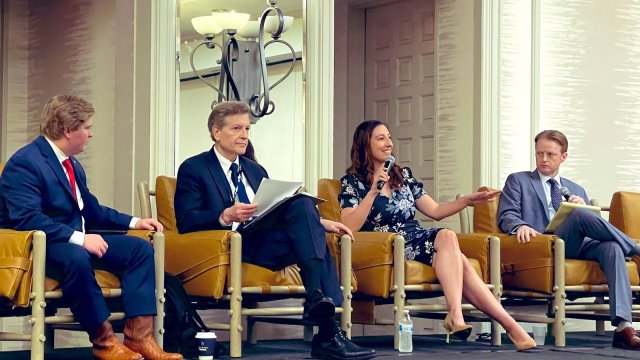Table of Contents
Trinity University policy burdens events with a ‘History of or Potential for Protests or Disturbance’

Trinity University, a private institution in Texas, states in official policy that its students “shall enjoy the same freedom of speech, peaceful assembly, and the right to petition that all other citizens enjoy,” and allows them to invite guest speakers for events. However, if the university thinks a speaker has any “History of or Potential for Protests or Disturbance,” its Event Review Guidelines allow it to place extra requirements on groups, like taking out insurance.
Burdening events with more hoops to jump through based on viewpoint-discriminatory criteria isn’t the “same freedom of speech . . . all other citizens enjoy” — it’s impermissible under First Amendment standards. For this reason, we’ve made Trinity’s Event Review Guidelines FIRE’s Speech Code of the Month for April.
In Forsyth County v. Nationalist Movement, the Supreme Court held, “Speech cannot be financially burdened, any more than it can be punished or banned, simply because it might offend a hostile mob.”
So while it may make sense for a university to take extra precautions — on its own part — when there’s evidence protestors intend to disrupt an invited speaker’s event, this policy allows administrators to hit speakers with extra fees whenever they feel there’s the “[p]otential” for protest or “disturbance.”
Students must not be discouraged from holding events on campus, no matter the viewpoint of the speaker.
Making things even more fuzzy, the policy later defines disturbance as “anything that may cause confusion/disorder/interruption, impede the progress of, or prevent the normal or expected functioning” of an event (emphasis added).
Under such broad criteria, it’s all too easy for an administrator motivated to discourage a student group from holding a particular event to require the group or invited guest to meet extra requirements. The policy invites abuse, and we don’t have to make up a hypothetical scenario to illustrate that.
Last month, FIRE sent a letter to Trinity after it required a speaker invited to campus to purchase liability insurance for her appearance. Why did her appearance cause concern? Her last name is Trump.

‘Trump’ed-up charges: Trinity University imposes insurance requirement on campus speaker for having wrong last name
News
Trinity University reportedly requires invited campus speaker to purchase insurance because she shares her last name with Donald Trump.
Cherise Trump, the executive director of the free speech nonprofit Speech First, isn’t related to the former president. However, merely because they share a last name, an administrator at Trinity told the student organization who invited her to campus that students may “mistakenly believe that Cherise Trump is related to Donald Trump which may attract opposing groups,” presenting an “elevated risk” for disturbance.
Trump ended up paying for the insurance, but not all speakers or groups are able to shoulder such extra costs. As a result, speakers and groups that hold views that differ from those held by the majority of students on campus — or by administrators — are disadvantaged.
Students must not be discouraged from holding events on campus, no matter the viewpoint of the speaker. After all, the opportunity to engage with a wide range of perspectives is exactly what college should be about! And, to be clear, students must also be permitted to lawfully protest an upcoming event or speaker, so long as they do not materially and substantially disrupt that event.
Please join FIRE in, once again, calling on Trinity to revise this policy and adopt only content- and viewpoint-neutral criteria for assessing fees and requirements for campus events.
FIRE’s Policy Reform team stands ready to assist with revisions.
Recent Articles
FIRE’s award-winning Newsdesk covers the free speech news you need to stay informed.

Texas tramples First Amendment rights with police crackdown of pro-Palestinian protests

Here’s what students need to know about protesting on campus right now

Kansas takes a stand for intellectual freedom


